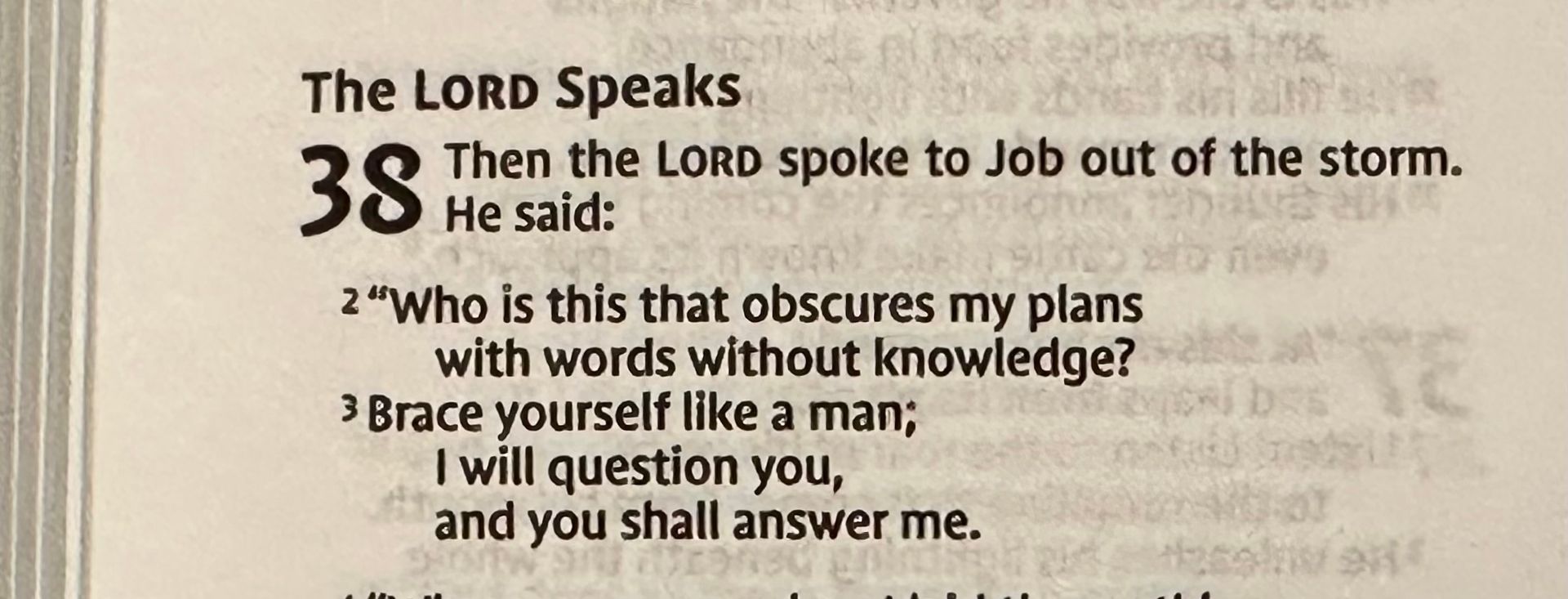Contact Us
General Phone: 614-546-5160
Intake Phone: 614-991-0131
Email: info@therefugeohio.org
Address: P.O. Box 163173, Columbus, OH 43216
Brace Yourself Like a Man

Recently, while reading through the Bible, I came across a powerful exchange between Job and God. In his pain and desperation, Job pleads with God, questioning the suffering he’s enduring. When God responds, it’s not with comforting words or promises of things getting better. Instead, depending on the translation, God tells Job to “gird up your loins like a man,” “dress yourself for action like a man,” or simply “brace yourself like a man.”
This struck me deeply, especially in relation to every man who, at his breaking point, begins the journey of recovery. Just like Job, who exposes his pain and vulnerability in his conversation with God, men fighting to overcome addiction must face their demons. They must stand strong before their struggles, brace themselves for the painful truths they’ll have to confront, and prepare for the reality of the battle ahead.
Addiction, much like the boils that plagued Job’s body, eats away at a man’s life. The losses Job faced—his family, his possessions—serve as a powerful symbol of what addiction takes from a man. It slowly strips away the substance of life, just as alcohol or drugs slowly erode everything a man holds dear. Job’s friends offer their advice, blaming Job’s suffering on a lack of righteousness or sin. Similarly, the addict often hears these same criticisms, but they often come from within himself.
Yes, addiction starts as a choice, a decision to use or drink. But the roots of addiction run deeper. What lies beneath the surface—the trauma, the pain, the emptiness—is where the true destruction happens. What happened that caused the drink or the drug to take such hold? When did it become stronger than relationships, passions, and the essence of life itself? And when does the bottom finally become deep enough that a man stops digging and starts reaching out for help?
When God tells Job to “brace himself like a man,” it’s not a rebuke, but an invitation. God calls Job to be mature—to face the difficult truths, to look honestly at his own heart, and to understand the heart of God. In much the same way, when a man confronts addiction, he must face his own darkness, his weaknesses, and the damage he’s caused. He’ll be forced to reckon with the people he’s let down, the years wasted, and the countless “what ifs.”
For the addict, isolation becomes a home. What might have started as a social activity ultimately turns into a solitary, destructive path. But recovery begins in connection. Job had his friends—though their advice might have been flawed, they still provided him with a community in his time of loss. Similarly, family and loved ones often want to surround the addict and help, but like Job’s friends, they may not fully understand the “why” or “how.” Still, their presence is crucial.
The turning point comes when willingness shifts into surrender. This is where change begins—when a man chooses to brace himself like a man, to face the full weight of his past, both the hurt he’s received and the harm he’s caused. It’s in this raw moment that transformation starts. The road is not easy; accepting painful truths and the sometimes-painful guidance of others is never simple. But through that pain, growth happens. Clarity emerges. And the way forward—out of the wilderness and into hope—becomes visible.
Willingness to confront our struggles head-on is the first step toward becoming the new man. This journey leads to new relationships, restored community, and brotherhood. We begin to realize we are not alone; we are part of a greater community that shares the common bond of overcoming addiction. Willingness opens the door to healing, to new and restored relationships. As a man shifts from self-centeredness to service to others, the new man begins to emerge, accepted and renewed.
I’ve have heard the process of recovery described as “the easiest hard thing you will ever do.” Facing God, standing before your brothers, and bracing yourself for change isn’t easy. Real change never is. But when a man is willing to face his darkness and put in the hard work of transformation, he will undoubtedly find the light.
